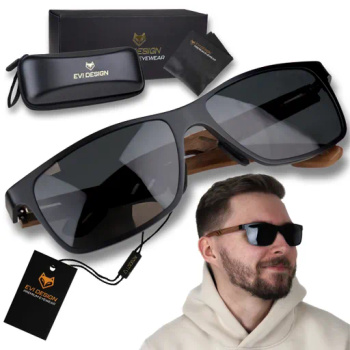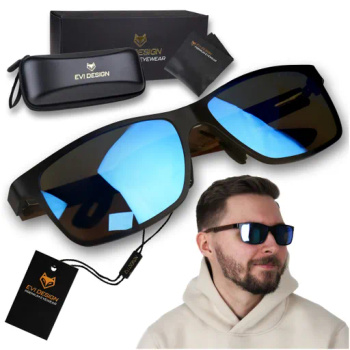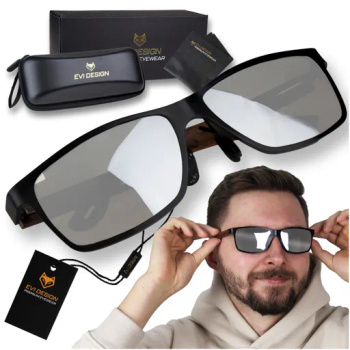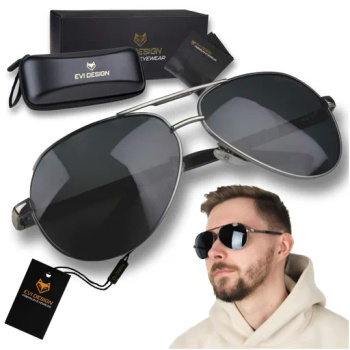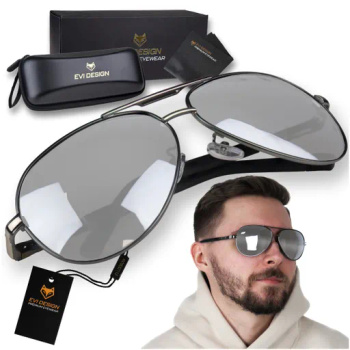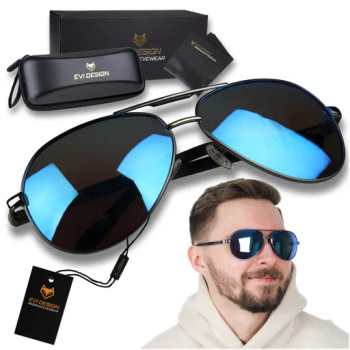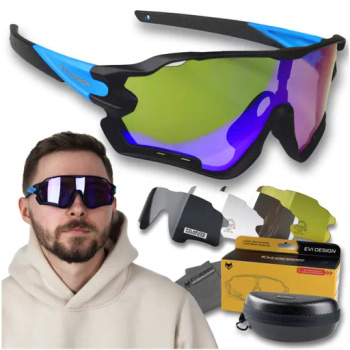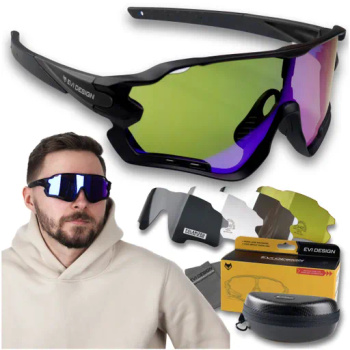Protecting your eyes! Polarized sunglasses

Polarized sunglasses - protection
In today's article, we would like to introduce you to the topic of polarized sunglasses.
You will learn what makes them stand out, what benefits they bring and you will find useful tips on cleaning your glasses.
Read on to learn more about eye protection.

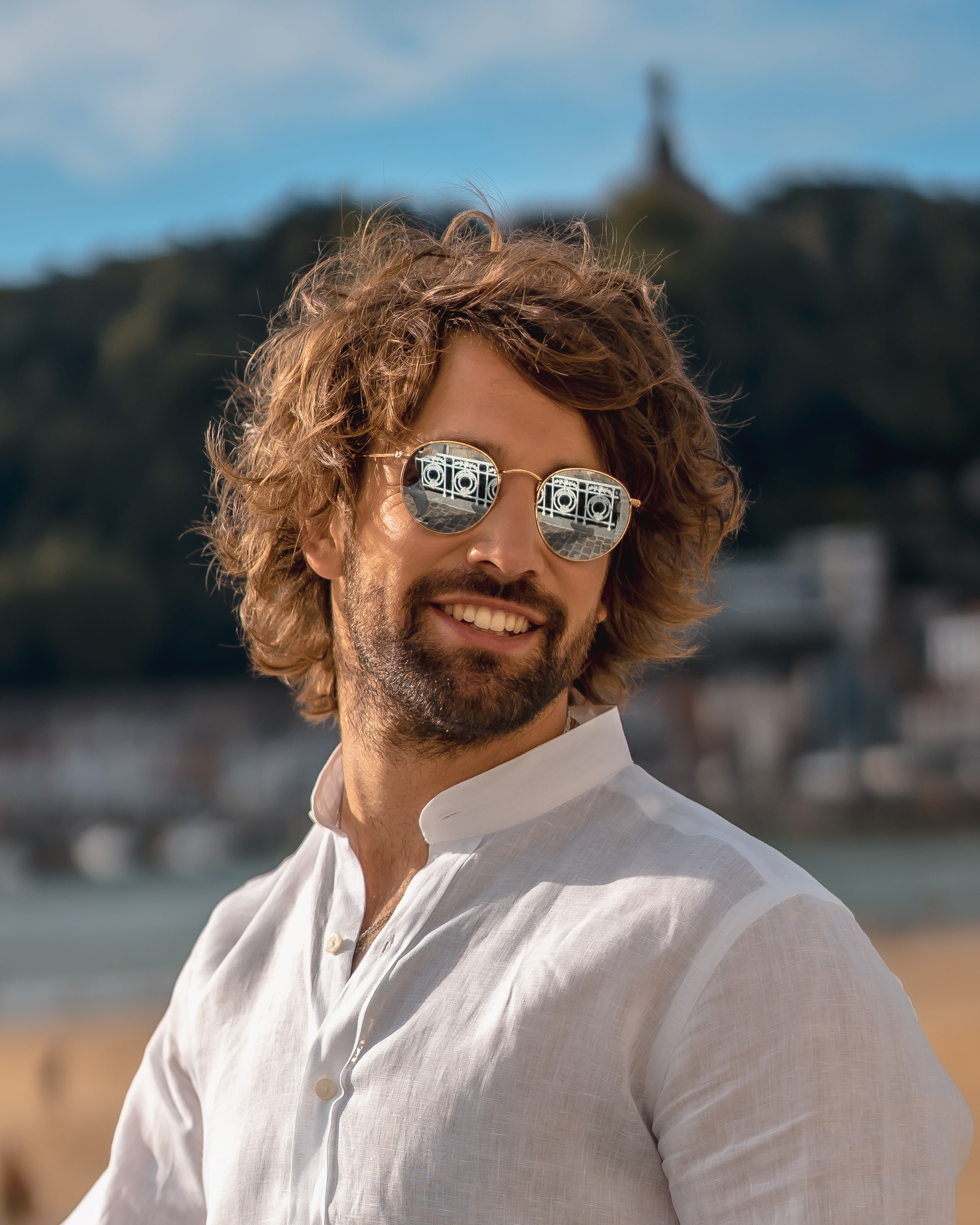
Differences between polarized glasses and regular sunglasses.
Polarized sunglasses differ from regular sunglasses mainly due to their ability to reduce glare and stray light. Here are some key differences between them:
- Reflections: Polarized sunglasses are more effective at reducing glare from flat surfaces than regular glasses. Thanks to this, they provide better visibility and visual comfort in bright conditions.
- Contrast and Clarity: Polarized sunglasses improve contrast and visual acuity, resulting in a clearer image. Regular sunglasses do not have this feature.
- Price: Polarized sunglasses may be slightly more expensive than regular sunglasses due to the additional polarization features. However, the price may vary depending on the brand, quality of materials, etc.
- Application: Polarized sunglasses are especially useful in situations where reflections may be bothersome, for example while driving, practicing water or winter sports.
Regular sunglasses also protect your eyes from UV radiation, but they do not offer the same glare reduction.
How to check if glasses have a polarization function?
There are a few simple methods you can use to check if your sunglasses have a polarization function.
One of them is the rotation method, which involves turning the glasses at different angles in relation to the light source, for example to view from water or a flat surface. If the lenses are polarized, they should block glare and provide better visibility at certain angles.
Another method is to use special polarization testers, which are available in some optical stores.
EVI glasses come with a special tester that allows you to check the polarization of the glasses.
Why is it worth wearing sunglasses?
Wearing sunglasses has many benefits for both your eye health and your overall well-being. Here are some reasons why you should wear sunglasses:
- Protection against harmful UV radiation: UV radiation can lead to many vision problems, such as cataracts and simple eye irritation. UV-blocking sunglasses block harmful UV rays and help protect your eyes from these conditions.
- Glare reduction: Polarized sunglass lenses eliminate glare from flat surfaces such as water, snow or wet road surfaces. Thanks to this, they provide better visibility, especially in situations where reflections may be bothersome, for example when driving a car or practicing outdoor sports.
- Visual comfort: Polarized sunglasses improve contrast and visual acuity, resulting in clearer images. You can enjoy more comfortable and less tiring vision, especially in bright conditions with high sun exposure.


What are UV filters?
UV filters are special coatings used on sunglass lenses that have the ability to block harmful UV radiation. UV radiation is invisible to the human eye, but it can cause many health problems for both the skin and eyes. UV filters act as a barrier that absorbs or reflects UV radiation, thus protecting our eyes from its negative effects.
UV radiation can be divided into three types, depending on the wavelength:
- UV-A: This is the longest UV radiation that can penetrate deep into the eye. It is responsible for DNA damage in skin and eye cells, contributing to the skin aging process and increasing the risk of certain eye diseases.
- UV-B: UV-B radiation has a shorter wavelength and can cause sunburn and damage to the skin and eyes. The skin is able to absorb most UV-B radiation, but the eyes are more sensitive to this radiation.
- UV-C: This is the shortest UV radiation and is virtually completely absorbed by the Earth's atmosphere. It does not pose a direct threat to our eyes because it does not reach the earth's surface.
How to choose sunglasses with the right UV filters?
When choosing sunglasses with appropriate UV filters, it is worth considering several factors:
- UV Filtering: Make sure the glasses you choose are rated 100% UV protection or UV 400, which means they block both UV-A, UV-B and UV-C radiation. This information should be included on the label or product information.
- Large lenses and proper fit: Choose glasses with larger lenses or frames that fit snugly to your face. The larger the surface covered by the lenses, the better the protection for the eyes against UV radiation and glare.
- Lens quality: It is worth investing in sunglasses with high-quality lenses that provide effective filtration of UV radiation. Polarized lenses can further reduce glare and improve visual comfort.
- Certificates and standards: Check whether the sunglasses have the appropriate certificates and meet safety standards, such as CE or ANSI standards. This confirms that the glasses are tested for UV filtration and optical quality.
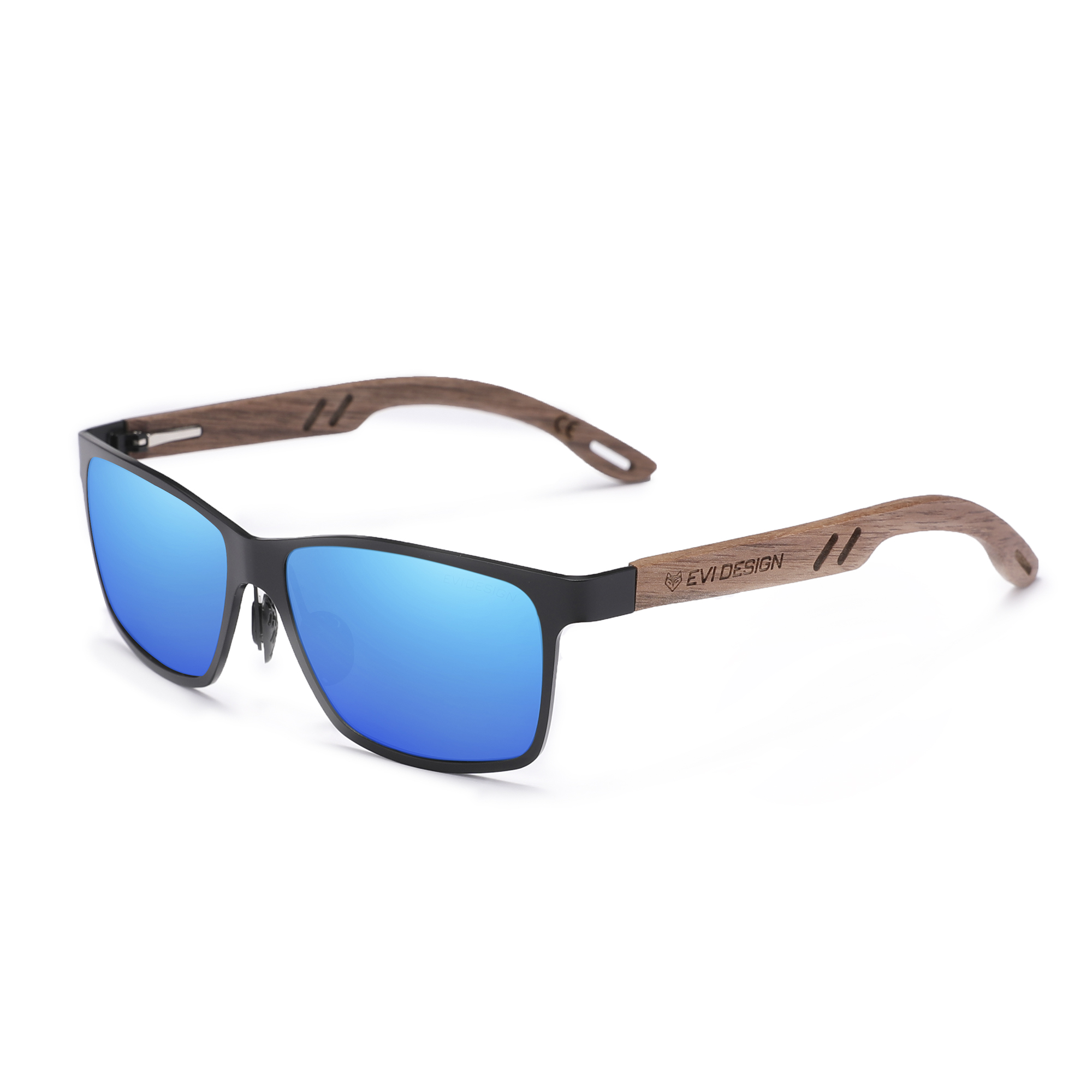

Frequency of replacing sunglasses.
Sunglasses, like other accessories, can become worn and damaged over time. Therefore, it is important to check their condition regularly and replace them at the right time. Here are some tips on how often to replace your sunglasses:
- Mechanical damage: If the sunglasses are mechanically damaged, for example they have a cracked frame or scratched lenses, they should be replaced immediately because the damage may affect protection and the quality of vision.
- Fashion Update: If you want to stay up to date with the latest sunglasses trends and styles, you may want to consider replacing your glasses with new models that match your current style.
- Children's glasses: If you are purchasing sunglasses for children, remember that children's rapid development and activity may cause more wear and tear on the glasses. Regularly check the condition of children's glasses and replace them if they are damaged or inappropriate for the child's current stage of development.
- Changing optical needs: If your optical needs change, for example you start wearing prescription glasses, make sure your sunglasses match your prescription. In this case, you may need to replace your glasses.
Thank you for reading our article on polarized sunglasses. Now you should have more knowledge about their differences, benefits for the eyes, selection and cleaning.
Let your eyes enjoy not only the sun, but also fashionable glasses!
If you are interested in specific products, please check out our offer.

